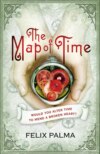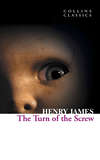Czytaj książkę: «The Letters of Henry James. Vol. I», strona 14
To Miss Alice James
The play which H. J. had given his sister to read was the dramatic version of The American. It had now been accepted for production by Edward Compton, who was to play the part of Christopher Newman. Some intentional and humorous exaggeration, it ought perhaps to be mentioned, enters into H. J.'s constant appeal for discreet silence in these matters. As for the projected excursion with Mr. and Mrs. Curtis, he eventually went with them the whole way, and saw the Passion Play at Oberammergau.
Palazzo Barbaro, Venice.June 6th [1890].
Dearest Sister,
I am ravished by your letter after reading the play (keep it locked up, safe and secret, though there are three or four copies in existence) which makes me feel as if there had been a triumphant première and I had received overtures from every managerial quarter and had only to count my gold. At any rate I am delighted that you have been struck with it exactly as I have tried to strike, and that the pure practical character of the effort has worked its calculated spell upon you. For what encourages me in the whole business is that, as the piece stands, there is not, in its felicitous form, the ghost of a "fluke" or a mere chance: it is all "art" and an absolute address of means to the end—the end, viz., of meeting exactly the immediate, actual, intense British conditions, both subjective and objective, and of acting in (to a minute, including entr'actes) 2 hours and 3/4. Ergo, I can do a dozen more infinitely better; and I am excited to think how much, since the writing of this one piece has been an education to me, a little further experience will do for me. Also I am sustained by the sense, on the whole, that though really superior acting would help it immensely, yet mediocrity of handling (which is all, at the best, I am pretty sure, that it will get) won't and can't kill it, and that there may be even something sufficiently general and human about it, to make it (given its eminent actability) "keep the stage," even after any first vogue it may have had has passed away. That fate—in the poverty-stricken condition of the English repertory—would mean profit indeed, and an income to my descendants. But one mustn't talk of this kind of thing yet. However, since you have been already so deeply initiated, I think I will enclose (keep it sacredly for me) an admirable letter I have just received from the precious Balestier in whose hands, as I wrote you, I placed the settlement of the money-question, the terms of the writing agreement with Compton. Compton saw him on Monday last—and I send the letter mainly to illustrate the capital intelligence and competence of Balestier and show you in what good hands I am. He will probably strike you, as he strikes me, as the perfection of an "agent"—especially when you consider that he has undertaken this particular job out of pure friendship. Everything, evidently, will be well settled—on the basis, of course, which can't be helped, of production in London only about the middle of next year. But by that time I hope to have done a good bit more work—and I shall be beguiled by beginning to follow, in the autumn, the rehearsals for the country production. Keep Balestier's letter till I come back—I shall get another one from him in a day or two with the agreement to sign.... These castles in Spain are at least exhilarating: in a certain sense I should like you very much to communicate to William your good impression of the drama—but on the whole I think you had better not, for the simple reason that it is very important it shouldn't be talked about (especially so long) in advance—and it wouldn't be safe, inasmuch as every whisper gets into the papers—and in some fearfully vulgarized and perverted form. You might hint to William that you have read the piece under seal of secresy to me and think so-and-so of it—but are so bound (to me) not to give a sign that he must bury what you tell him in tenfold mystery. But I doubt if even this would be secure—it would be in the Transcript the next week.
Venice continues adorable and the Curtises the soul of benevolence. Their upstairs apartment (empty and still unoffered—at forty pounds a year—to any one but me) beckons me so, as a foot-on-the-water here, that if my dramatic ship had begun to come in, I should probably be tempted to take it at a venture—for all it would matter. But for the present I resist perfectly—especially as Venice isn't all advantageous. The great charm of such an idea is the having, in Italy, a little cheap and private refuge independent of hotels etc., which every year grow more disagreeable and German and tiresome to face—not to say dearer too. But it won't be for this year—and the Curtises won't let it. What Pen Browning has done here … with the splendid Palazzo Rezzonico, transcends description for the beauty, and, as Ruskin would say, "wisdom and rightness" of it. It is altogether royal and imperial—but "Pen" isn't kingly and the train de vie remains to be seen. Gondoliers ushering in friends from pensions won't fill it out.... I am thinking, after all, of joining the Curtises in the evidently most beautiful drive (of upwards of a week, with rests) they are starting upon on the 14th, from a place called Vittorio, in the Venetian Alps, two hours rail from here, through Cadore, Titian's country, the Dolomites etc., toward Oberammergau. They offer me pressingly the fourth seat in the carriage that awaits them when they leave the train—and also an extra ticket they have taken for the play at Oberammergau, if I choose to go so far. This I shall scarcely do, but I shall probably leave with them, drive 4 or 5 days and come back, via Verona, by rail—leaving my luggage here. Continue to address here—unless, before that, I give you one other address while I am gone. I shall find all letters here, on my return, if I do go, in the keeping of the excellent maestro di casa—the Venetian Smith. I should be back, at the latest, by the 25th—probably by the 20th. In this case I shall presumably go back to Florence to spend 4 or 5 days with Baldwin (going to Siena or Perugia;) after which I have a dream of going to Vallombrosa (nearly 4000 feet above the sea—but of a softness!) for 2 or 3 weeks—till I have to leave Italy on my way home. I am writing to Edith Peruzzi, who has got a summer-lodge there, and is already there, for information about the inn. If I don't go there I shall perhaps try Camaldoli or San Marcello—all high in the violet Apennines, within 3 or 4 hours, and mainly by a little carriage, of Florence. But I want to compass Vallombrosa, which I have never seen and have always dreamed of and which I am assured is divine—infinitely salubrious and softly cool. The idea of lingering in Italy a few weeks longer on these terms is very delightful to me—it does me, as yet, nothing but good. But I shall see. I put B.'s letter in another envelope. I rejoiced in your eight gallops; they may be the dozen now.
Ever your HENRY.
To William James
Paradisino, Vallombrosa, Tuscany.July 23rd, 1890.
My dear Brother,
I had from you some ten days ago a most delightful letter written just after the heroic perusal of my interminable novel—which, according to your request, I sent off almost too precipitately to Alice, so that I haven't it here to refer to. But I don't need to "refer" to it, inasmuch as it has plunged me into a glow of satisfaction which is far, as yet, from having faded. I can only thank you tenderly for seeing so much good in the clumsy thing—as I thanked your Alice, who wrote me a most lovely letter, a week or two ago. I have no illusions of any kind about the book, and least of all about its circulation and "popularity." From these things I am quite divorced and never was happier than since the dissolution has been consecrated by (what seems to me) the highest authorities. One must go one's way and know what one's about and have a general plan and a private religion—in short have made up one's mind as to ce qui en est with a public the draggling after which simply leads one in the gutter. One has always a "public" enough if one has an audible vibration—even if it should only come from one's self. I shall never make my fortune—nor anything like it; but—I know what I shall do, and it won't be bad.—I am lingering on late in Italy, as you see, so as to keep away from London till August 1st or thereabouts. (I stay in this exquisite spot till that date.) I shall then, returning to my normal occupations, have had the best and clearest and pleasantest holiday of three months, that I have had for many a day. I have been accompanied on this occasion by a literary irresponsibility which has caused me to enjoy Italy perhaps more than ever before;—let alone that I have never before been perched (more than three thousand feet in the air) in so perfect a paradise as this unspeakable Vallombrosa. It is Milton's Vallombrosa, the original of his famous line, the site of the old mountain monastery which he visited and which stands still a few hundred feet below me as I write, "suppressed" and appropriated some time ago by the Italian Government, who have converted it to the State school of "Forestry." This little inn—the Paradisino, as it is called, on a pedestal of rock overhanging the violet abysses like the prow of a ship, is the Hermitage (a very comfortable one) of the old convent. The place is extraordinarily beautiful and "sympathetic," the most romantic mountains and most admirable woods—chestnut and beech and magnificent pine-forests, the densest, coolest shade, the freshest, sweetest air and the most enchanting views. It is full 20 years since I have done anything like so much wandering through dusky woods and lying with a book on warm, breezy hillsides. It has given me a sense of summer which I had lost in so many London Julys; given me almost the summer of one's childhood back again. I shall certainly come back here for other Julys and other Augusts—and I hate to go away now. May you, and all of you, these weeks, have as sweet, or half as sweet, an impression of the natural universe as yours affectionately,
HENRY JAMES.
To Edmund Gosse
The "ordeal" was the first night of The American, produced by Edward Compton and his company at Southport in anticipation of its eventual appearance in London.
Prince of Wales Hotel,Southport.Jan. 3rd [1891].
My dear Gosse,
I am touched by your petit mot. De gros mots seem to me to be so much more applicable to my fallen state. The only thing that can be said for it is that it is not so low as it may perhaps be to-morrow—after the vulgar ordeal of to-night. Let me therefore profit by the few remaining hours of a recognizable status to pretend to an affectionate reciprocity. I am yours and your wife's while yet I may be. After 11 o'clock to-night I may be the world's—you know—and I may be the undertaker's. I count upon you both to spend this evening in fasting, silence and supplication. I will send you a word in the morning—wire you if I can—if there is anything at all to boast of. My hopes rest solely on intrinsic charms—the adventitious graces of art are not "in it." I am so nervous that I miswrite and misspell. Pity your infatuated but not presumptuous friend,
HENRY JAMES.
P.S. It would have been delightful—and terrible—if you had been able to come. I believe Archer is to come.
P.P.S. I don't return straight to London—don't get there till Tuesday or Wednesday. I shall have to wait and telegraph you which evening I can come in.
To Mrs. Hugh Bell
34 De Vere Gardens, W.Jan. 8th [1891].
Dear Mrs. Bell,
Your most kind gratulatory note deserved an answer more gratefully prompt than this. But I extended my absence from town to a short visit at Cheltenham, and the whole thing was virtually, till yesterday, a complete extinction of leisure. Delightful of you to want "details." I think, if I were to inflict them on you, they would all be illustrative of the cheering and rewarding side of our feverish profession. The passage from knock-kneed nervousness (the night of the première, as one clings, in the wing, to the curtain rod, as to the pied des autels) to a simmering serenity is especially life-saving in its effect. I flung myself upon Compton after the 1st act: "In heaven's name, is it going?" "Going?—Rather! You could hear a pin drop!" Then, after that, one felt it—one heard it—one blessed it—and, at the end of all, one (after a decent and discreet delay) simpered and gave oneself up to courbettes before the curtain, while the applausive house emitted agreeable sounds from a kind of gas-flaring indistinguishable dimness and the gratified Compton publicly pressed one's hand and one felt that, really, as far as Southport could testify to the circumstance, the stake was won. Of course it's only Southport—but I have larger hopes, inasmuch as it was just the meagre provincial conditions and the limited provincial interpretation that deprived the performance of all adventitious aid. And when my hero and heroine and another friend supped with me at the inn after the battle, I felt that they were really as radiant as if we were carousing among the slain. They seem indeed wondrous content. The great feature of the evening was the way Compton "came out" beyond what he had done or promised at rehearsal, and acted really most interestingly and admirably—if not a "revelation" at any rate a very jolly surprise. His part is one in which I surmise he really counts upon making a large success—and though I say it who shouldn't, it is one of incontestable opportunities. However, all this is to come—and we stumble in judgment. Amen. Voilà, ma chère amie. You have been through all this, and more, and will tolerate my ingenuities....
All merriment to your "full house."
Yours most truly,HENRY JAMES.
To Robert Louis Stevenson
34 De Vere Gardens, W.January 12th, 1891.
My dear Louis,
I have owed you a letter too shamefully long—and now that I have taken my pen in hand, as we used to say, I feel how much I burn to communicate with you. As your magnanimity will probably have forgotten how long ago it was that you addressed me, from Sydney, the tragic statement of your permanent secession I won't remind you of so detested a date. That statement, indeed, smote me to the silence I have so long preserved: I couldn't—I didn't protest; I even mechanically and grimly assented; but I couldn't talk about it—even to you and your wife. Missing you is always a perpetual ache—and aches are disqualifying for gymnastic feats. In short we forgive you (the Muses and the soft Passions forgive us!) but we can't quite treat you as if we did. However, all this while I have many things to thank you for. In the first place for Lloyd. He was delightful, we loved him—nous nous l'arrachâmes. He is a most sympathetic youth, and we revelled in his rich conversation and exclaimed on his courtly manners. How vulgar you'll think us all when you come back (there is malice in that "when.") Then for the beautiful strange things you sent me and which make for ever in my sky-parlour a sort of dim rumble as of the Pacific surf. My heart beats over them—my imagination throbs—my eyes fill. I have covered a blank wall of my bedroom with an acre of painted cloth and feel as if I lived in a Samoan tent—and I have placed the sad sepia-drawing just where, 50 times a day, it most transports and reminds me. To-day what I am grateful for is your new ballad-book, which has just reached me by your command. I have had time only to read the first few things—but I shall absorb the rest and give you my impression of them before I close this. As I turn the pages I seem to see that they are full of charm and of your "Protean" imaginative life—but above all of your terrible far-off-ness. My state of mind about that is of the strangest—a sort of delight at having you poised there in the inconceivable; and a miserable feeling, at the same time, that I am in too wretched a back seat to assist properly at the performance. I don't want to lose any of your vibrations; and, as it is, I feel that I only catch a few of them—and that is a constant woe. I read with unrestrictive relish the first chapters of your prose volume (kindly vouchsafed me in the little copyright-catching red volume,) and I loved 'em and blessed them quite. But I did make one restriction—I missed the visible in them—I mean as regards people, things, objects, faces, bodies, costumes, features, gestures, manners, the introductory, the personal painter-touch. It struck me that you either didn't feel—through some accident—your responsibility on this article quite enough; or, on some theory of your own, had declined it. No theory is kind to us that cheats us of seeing. However, no doubt we shall rub our eyes for satiety before we have done. Of course the pictures—Lloyd's blessed photographs—y sont pour beaucoup; but I wanted more the note of portraiture. Doubtless I am greedy—but one is when one dines at the Maison d'or. I have an idea you take but a qualified interest in "Beau Austin"—or I should tell you how religiously I was present at that memorable première. Lloyd and your wonderful and delightful mother will have given you the agreeable facts of the occasion. I found it—not the occasion, so much, but the work—full of quality, and stamped with a charm; but on the other hand seeming to shrug its shoulders a little too much at scenic precautions. I have an idea, however, you don't care about the matter, and I won't bore you with it further than to say that the piece has been repeatedly played, that it has been the only honourable affair transacted dans notre sale tripot for many a day—and that Wm. Archer en raffole periodically in the "World." Don't despise me too much if I confess that anch' io son pittore. Je fais aussi du théâtre, moi; and am doing it, to begin with, for reasons too numerous to burden you with, but all excellent and practical. In the provinces I had the other night, at Southport, Lancashire, with the dramatization of an early novel—The American—a success dont je rougis encore. This thing is to be played in London only after several months—and to make the tour of the British Islands first. Don't be hard on me—simplifying and chastening necessity has laid its brutal hand on me and I have had to try to make somehow or other the money I don't make by literature. My books don't sell, and it looks as if my plays might. Therefore I am going with a brazen front to write half a dozen. I have, in fact, already written two others than the one just performed; and the success of the latter pronounced—really pronounced—will probably precipitate them. I am glad for all this that you are not here. Literature is out of it. I miss no occasion of talking of you. Colvin I tolerably often see: I expect to do so for instance to-night, at a decidedly too starched dining-club to which we both belong, of which Lord Coleridge is president and too many persons of the type of Sir Theodore Martin are members. Happy islanders—with no Sir Theodore Martin. On Mrs. Sitwell I called the other day, in a charming new habitat: all clean paint and fresh chintz. We always go on at a great rate about you—celebrate rites as faithful as the early Christians in the catacombs....
January 13th.—I met Colvin last night, after writing the above—in the company of Sir James Stephen, Sir Theo. Martin, Sir Douglas Galton, Sir James Paget, Sir Alfred Lyall, Canon Ainger, and George du Maurier. How this will make you lick your chops over Ori and Rahiro and Tamatia and Taheia—or whatever ces messieurs et ces dames, your present visiting list, are called. He told me of a copious diary-letter he has just got from you, bless you, and we are discussing a day on which I shall soon come to meat or drink with him and listen to the same. Since yesterday I have also read the ballad book—with the admiration that I always feel as a helplessly verseless creature (it's a sentiment worth nothing as a testimony) for all performances in rhyme and metre—especially on the part of producers of fine prose.
January 19th.—I stopped this more than a week ago, and since then I have lacked time to go on with it—having been out of town for several days on a base theatrical errand—to see my tribute to the vulgarest of the muses a little further on its way over the provincial circuit and re-rehearse two or three portions of it that want more effective playing. Thank heaven I shall have now no more direct contact with it till it is produced in London next October.—I broke off in the act of speaking to you about your ballad-book. The production of ringing and lilting verse (by a superior proser) always does bribe me a little—and I envy you in that degree yours; but apart from this I grudge your writing the like of these ballads. They show your "cleverness," but they don't show your genius. I should say more if it were not odious to a man of my refinement to write to you—so expectantly far away—in remonstrance. I don't find, either, that the cannibalism, the savagery se prête, as it were—one wants either less of it, on the ground of suggestion—or more, on the ground of statement; and one wants more of the high impeccable (as distinguished from the awfully jolly,) on the ground of poetry. Behold I am launching across the black seas a page that may turn nasty—but my dear Louis, it's only because I love so your divine prose and want the comfort of it. Things are various because we do 'em. We mustn't do 'em because they're various. The only news in literature here—such is the virtuous vacancy of our consciousness—continues to be the infant monster of a Kipling. I enclose, in this, for your entertainment a few pages I have lately written about him, to serve as the preface to an (of course authorized) American recueil of some of his tales. I may add that he has just put forth his longest story yet—a thing in Lippincott which I also send you herewith—which cuts the ground somewhat from under my feet, inasmuch as I find it the most youthfully infirm of his productions (in spite of great "life,") much wanting in composition and in narrative and explicative, or even implicative, art.
Please tell your wife, with my love, that all this is constantly addressed to her also. I try to see you all, in what I fear is your absence of habits, as you live, grouped around what I also fear is in no sense the domestic hearth. Where do you go when you want to be "cosy"?—or what at least do you do? You think a little, I hope, of the faithful forsaken on whose powers of evocation, as well as of attachment, you impose such a strain. I wish I could send a man from Fortnum and Mason's out to you with a chunk of mortadella. I am trying to do a series of "short things" and will send you the least bad. I mean to write to Lloyd. Please congratulate your heroic mother for me very cordially when she leaps upon your strand, and believe that I hold you all in the tenderest remembrance of yours ever, my dear Louis,
HENRY JAMES.




















